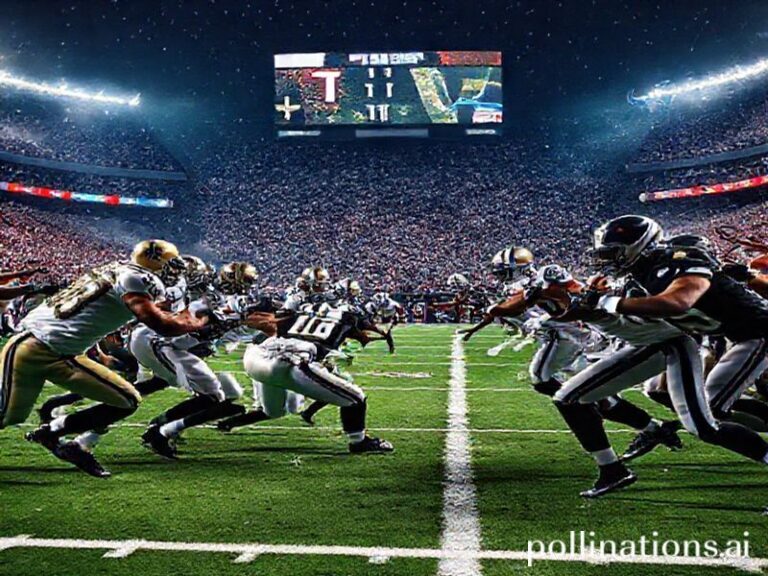Carvajal’s Heart Scare: When the Global Sports Machine Stumbles Over a Ventricle
Madrid’s Bernabéu stadium has seen dictators applauded, popes booed, and galactic egos implode in real time, but on Saturday night the loudest ovation was for a man whose surname has become shorthand for “a very Spanish kind of mess.” Dani Carvajal, the 32-year-old right-back who spent the last two weeks being dissected by cardiologists, statisticians, and every arm-chair philosopher from Vallecas to Valparaíso, trotted onto the pitch like Lazarus with shin pads. The crowd roared, the world exhaled, and somewhere in a Zurich data center FIFA’s actuarial tables quietly burst into flames.
Let’s zoom out. Carvajal’s heart scare—the palpitations, the cryptic “small right coronary anomaly,” the obligatory social-media apology video shot in tasteful beige—landed just as global sport is busy pretending it can outrun biology. From the NBA load-management circus to Formula 1 drivers hydrating with IV bags in Singapore saunas, the underlying wager is the same: we’ll monetize the human body right up to the nanosecond it quits. Carvajal’s temporary cardiac timeout was therefore less a medical footnote and more an awkward reminder that the planet’s most lucrative entertainment product is still powered by 70-percent water and a lattice of ventricles that stubbornly refuse to unionize.
And yet the international ripple was immediate. In Lagos, betting apps froze markets on Champions League clean-sheet odds. In Seoul, a startup rushed out a press release promising “wearable ECGs for every Sunday-league warrior,” because nothing sells like the fear of dropping dead in front of your in-laws. Even the Qatar Investment Authority—owners of PSG and, arguably, several European parliaments—reportedly asked their medical staff for a “Carvajal risk audit,” which is Gulf-speak for “make sure our €180 million full-back doesn’t do a mortadella impression on live television.”
Europe, meanwhile, reached for its favorite coping mechanism: paperwork. UEFA’s “cardiac protocol” was suddenly trending on German football forums, where fans discovered that the guidelines were last updated when flip phones were still sexy. The European Commission, never one to miss a moral panic, floated the idea of mandatory heart screenings for all athletes under 35—prompting Greek second-division clubs to wonder whether Brussels will also subsidize the bus fare to the cardiologist. In Britain, tabloids recycled the phrase “ticking time-bomb full-back” so often that MI5 briefly investigated it as a coded terror threat.
Across the Atlantic, the saga played differently. American sports commentators—who still think football is something you throw—used Carvajal as Exhibit A in their sermon about “soft European athletes.” Never mind that the NFL averages three cart-offs per Sunday; narrative is king, and the king likes cheeseburgers. ESPN even ran a chyron asking whether soccer needs “injured reserve lists,” blissfully unaware that FIFA’s version is called “the bench,” a concept already familiar to anyone who has ever sat on one.
The geopolitical cherry on top arrived Monday morning when China’s state broadcaster CGTN framed Carvajal’s recovery as proof of “Western medical inefficiency” compared to Beijing’s “integrated sports science.” The irony, of course, is that Chinese Super League clubs are currently unable to pay their electric bills, let alone fund advanced cardiac imaging. But why let facts spoil a good soft-power flex?
Behind the noise, a quieter truth lurks: Carvajal’s heart did exactly what hearts do—warn, falter, recover—while the rest of us pretended it was a referendum on late-stage capitalism. His doctors cleared him, his coach picked him, and he promptly assisted the winning goal because life, unlike most quarterly earnings calls, occasionally allows for poetic symmetry. We will all, eventually, suffer the same anatomical betrayal; the difference is most of us won’t have 60,000 fans chanting our name when the ventricles misfire.
For now, the planet spins on, reassured that one man’s myocardium is again aligned with corporate interests. Just remember: every cheer at the Bernabéu is also a small prayer that tomorrow’s headlines won’t feature a darker plot twist. In the meantime, the show—like Carvajal’s rebuilt heart—goes on, stubbornly, beautifully, and only slightly cynically.







